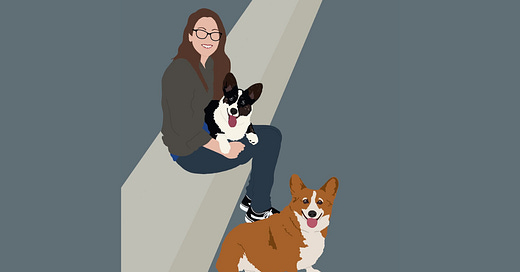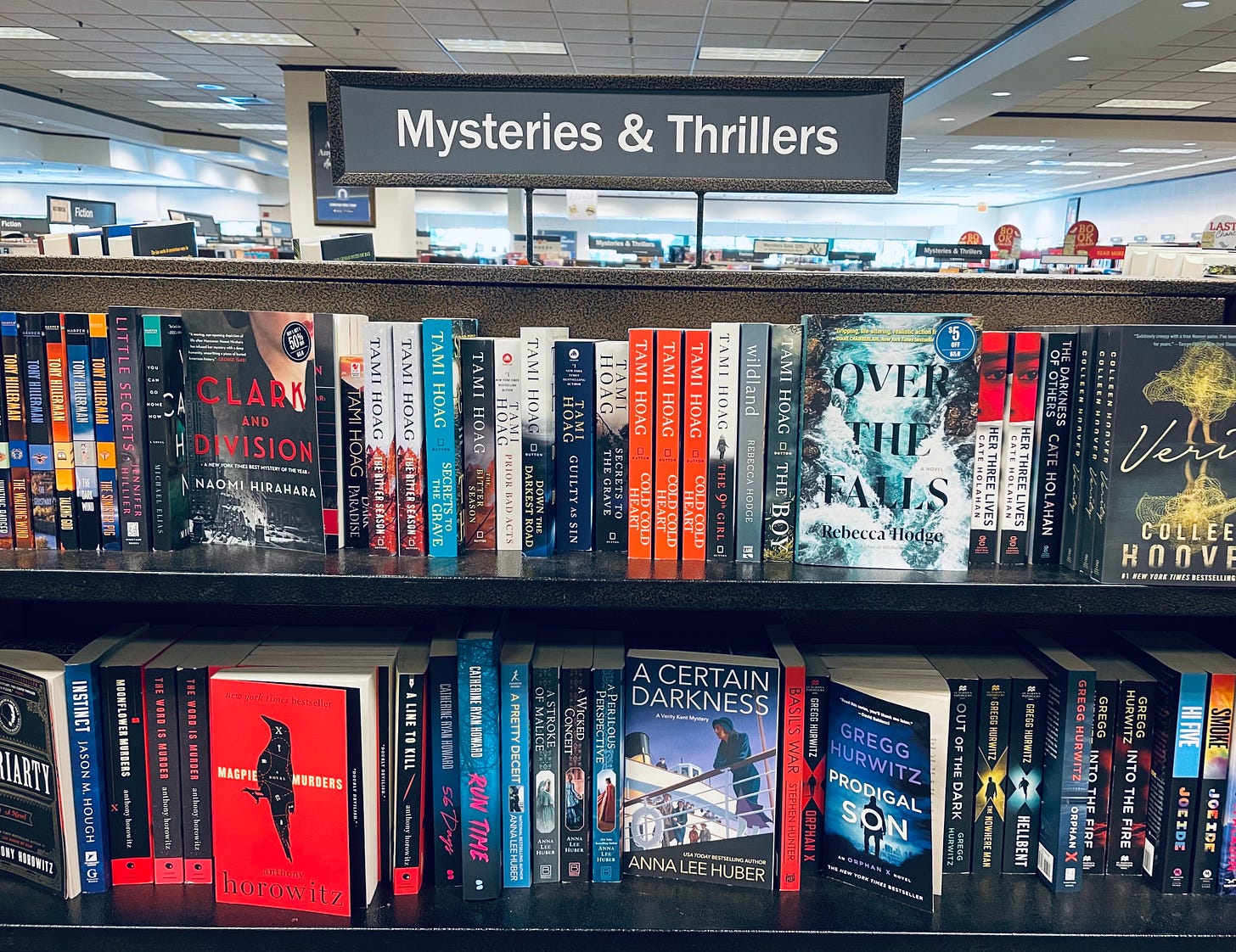
Alice: “How long is forever?”
White Rabbit: “Sometimes, just one second.”
― Lewis Carroll
When I first decided to take a break from work, I guessed that I would need three to four months of rest before being ready to jump back into a more relaxed version of my professional life. To nondisabled people, this seemed like a long yet reasonable guesstimate, many of them doing a *nudge nudge wink wink* saying, “I doubt you’ll be able to stay away from working that long.” While this would be 100% in line with how I have made being a workaholic an awkward personality trait, I realized that nondisabled people, generally speaking, have no idea how much being disabled can effect your life.
Disabled people often experience time warping around us in strange ways. It twists and bends, always shifting, depending on what’s going on in our lives. Maybe you mark time as before and after a certain procedure. Maybe you were bedridden for several years and now can barely remember what happened then. Maybe it feels like several months have passed in a moment. Maybe time slows to a trickle, and you feel forever trapped in a single moment.
“Crip Time” is a concept that centers around how disabled people often experience time differently. Society forces nondisabled norms on us, telling us how quickly we should respond to emails or that a 9-5 workday is nonnegotiable. But our time table is different. It’s Crip Time.
Crip Time: A concept arising from disabled experience that addresses the ways that disabled/chronically ill and neurodivergent people experience time (and space) differently than able-body/minded folk. In her essay on Crip Time, Ellen Samuels quotes her friend Alison Kafer, who says that crip times means: "rather than bend disabled bodies and minds to meet the clock, crip time bends the clock to meet disabled bodies and minds."
Time is a strange thing. Sometimes, especially on calls, I look up and startle when I see the time jump. My internal clock keeps malfunctioning, and I no longer trust myself to know what the date and time are at any given moment.
I keep asking my spouse, Is it Friday? Or Monday?
It’s Thursday, he says.
Now that I’m slowly getting my feet under me again, I’ve tried to pin down time, as if I can take control of it by sheer force of will. I make schedules, plan meetings, and lock down recording times all in the name of somehow forcing time to take some shape, to order it correctly in my mind. But one painful night or one day stuck the couch, and time escapes and shatters my inner clock. Seconds, minutes, and hours dissolve into vague ideas rather than actual measurements.
I’ve always been fascinated with Alice’s Adventures in Wonderland and Through the Looking Glass. The chaotic world of the fantastic that Alice falls into reminds me of how I relate to time. The events in her adventure are nonsensical—a frantic tea party, a smoking caterpillar, flowers that sing—but in some odd way, Alice’s world makes sense to me.
As Alice experiences one strange event to another, she possesses no real sense of time. One of her only encounters with time starts in our world, arriving in the form of an anxiety-ridden white rabbit declaring he’s late but never telling us where he’s going. Down the rabbit hole, Alice rarely notices that she has left time behind in the world above. Wonderland’s disordered chaos refuses to bend itself to what society tells us the world should be like and embraces a more whimsical existence with a hefty disregard for principles around what is possible.
Without an understanding of Crip Time, a disabled life unstuck in time must seem incredibly strange. Part of that’s true. Crip Time often feels bizarre. It’s nonsensical, spinning and dodging attempts to tame it into something manageable. But I can’t deny that a flexible view of time works better for my disabled body-mind. No longer limited by what is “normal,” I can move backwards and forwards with ease. Sometimes I may get lost along the way, but I’m learning to just appreciate the time I have, no matter when I am.
“In a Wonderland they lie, Dreaming as the days go by, Dreaming as the summers die:
Ever drifting down the stream- Lingering in the golden gleam- Life, what is it but a dream?”
― Lewis Carroll
Around the Web
“Kendra Winchester and Read Appalachia” (Urban Appalachian Community Coalition)
Mike Templeton interviewed me about Read Appalachia for the Urban Appalachian Community Coalition’s blog.
“Read Appalachia is a magnificent resource for anyone with an interest in Appalachia and Appalachian literature. But perhaps more than that, Kendra Winchester has managed to present Read Appalachia as so much more than a niche literary site. The writers and works we learn about on Read Appalachia articulate contemporary America itself, complete with all the complexity, messiness, beauty, and reality. Read Appalachia is distinctly Appalachian in its focus, but it offers anyone a multitude of detailed portraits of contemporary American life, not just Appalachian life. One of the main reasons the Urban Appalachian Community Coalition emphasizes communities in the plural is that Appalachians, and specifically Appalachian writers and poets, articulate contemporary experience in all its complexity while grounding these portraits in the distinctly Appalachian perspective.”
Things I Made Recently
AudioFile Magazine’s Behind the Mic Podcast
I’m the newest contributor to Behind the Mic, a daily podcast that recommends one audiobook. So far, I’ve done ten episodes, and you can find them all here.
Book Riot
Read or Dead
Surprise! I’m the new co-host of Book Riot’s Read or Dead podcast. It’s about all things thrillers and mysteries. I’ve recorded several episodes now, and I’ve enjoyed exploring this genre.
Articles
I’ve written several articles this fall, but here are my top three favorites:
“10 of the Best Literary Podcasts”
“When I entered the world of literary podcasts back in 2016, I had no idea that I had entered a community that would change my reading life. I co-founded Reading Women, a podcast that would eventually join Lit Hub Radio, and had the privilege of discussing books by or about women for six wonderful years. In that time, I was amazed over and over again at how a single conversation with an author made me a fan of theirs for life. I fangirled over Lauren Groff and Samantha Irby, and I had to mute myself as I cried while talking to Maggie O’Farrell and Alice Wong. Each conversation gave me a new perspective on the world.
This is the power of literary podcasts. These shows give us inside information about our favorite authors or connect to books that end up being our favorites for the rest of our life. They can comfort us on our bad days and make us feel joy when we need it. They can educate us and give us new insight.”
“Back to School with Audiobooks”
“Talking with disabled kids now, I appreciate seeing how online learning has changed the way they’re able to learn and the different types of educational materials they are able to access. But even more, I love hearing about how audiobooks are changing the lives of disabled kids around the world. Now more than ever before, audiobooks are more affordable, and libraries have access to countless titles. This means kids like me can listen to thousands of audiobooks, not just dozens.”
“More Than Hillbilly Elegy: The Vast Wealth of Appalachian Literature”
“No singular voice from Appalachia can stand as “the” voice for the region, nor should it. So regardless of how a person views Vance’s memoir, it shouldn’t be held to such high acclaim as the one book to “explain” Appalachia to the rest of the country. People from Appalachia don’t need help explaining who we are. We’ve been telling the wider world about the many different Appalachian cultures in these mountains for decades. Just not enough people outside of the region cared enough to listen.”
Newsletters
I write two newsletters for Book Riot: True Story, and Read This Book. You can subscribe to them here.
YouTube
Matthew, Jennifer, and I discuss Fieldwork in Ukrainian Sex by Oksana Zabuzhko, translated from Ukrainian by Halyna Hryn, for this year’s #WITReadathon group read.
“The time has come," the walrus said, "to talk of many things: Of shoes and ships - and sealing wax - of cabbages and kings”
― Lewis Carroll





I love your description of trying to "pin down time" only for the rug to be pulled out from under you again later because of a flare-up, etc. I'm autistic as well as chronically ill, and the dynamic nature of my illness has made me realize I need more tools in my informal "Coping with Change Toolbox," if that makes sense. Thanks for sharing your perspective. I wish more people knew about how time shifts with illness.